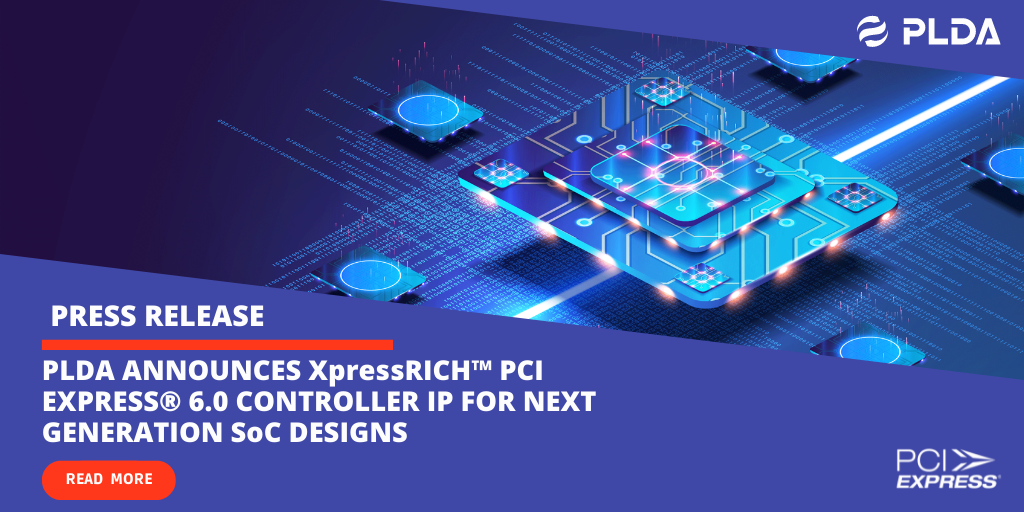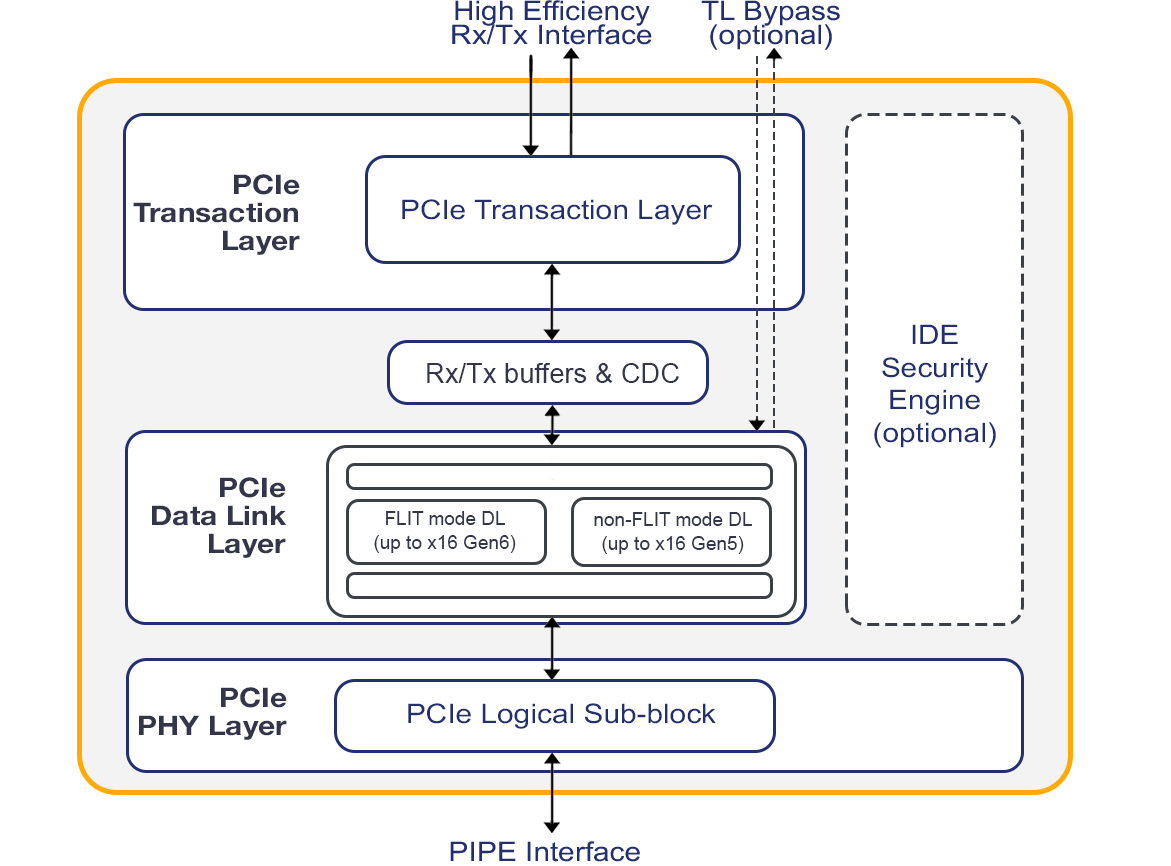

Highlights:
• Supports the PCIe® 6.0 specification, including 64GT/s data rates,
FLIT mode, and L0p power state.
• Designed for configurability to satisfy a multitude of customer and
industry use cases.
• A proven leader in PCIe controller design, PLDA IP ensures our
customers high performance, ease-of-integration and first-pass
silicon success.
PLDA, the leading developer of high-speed interconnect silicon IP, today
announced the launch of their XpressRICH™ PCI Express® (PCIe®)
Controller IP for the PCIe 6.0 specification. The PCIe 6.0 specification
provides an evolutionary step forward by doubling the data rate to 64
GT/s link rate negotiation. PCIe 6.0 architecture will be essential for SoC
designers and system architects creating next generation chips that require
the movement of large amounts of data within systems, in applications
including:
• HPC/Cloud Computing
• AI and Machine Learning
• Enterprise Storage
• Enterprise Networking
• Automotive
To support configurability for XpressRICH users, PLDA has implemented
a large number of features and ECN that can be fully parameterized
through the included configuration assistant.
Read The Full Article
 |
|
XpressRICH for PCIe 6.0
Controller IP for PCIe 6.0, Supporting Root
Port, Endpoint, Dual-mode, Switch Port
Configurations with Native User Interface
XpressRICH for PCIe 6.0 Product Page
|
 |
|
Webinar
In this webinar, we present the main
characteristics of the PCIe 6.0 protocol in
contrast to earlier revisions, and explain the
rationale behind the main architecture changes.
We then take a look at PCIe 6.0 from the
perspective of silicon IP enablement, by
introducing the main design features required
to take full advantage of the new level of
performance offered by PCIe 6.0.
|
Blog Article
With the announcement of PLDA's PCIe 6.0
controller IP, Paul Karazuba, VP Marketing
at PLDA, initiates today the first chapter of
a blog series dedicated to the PCIe 6.0
specification.He reminds us of the history
of PCIe and explains to us the differences
between this latest PCIe generation and
the previous ones.
|
|
 |
Copyright© 2021 PLDA, All rights reserved.
|
